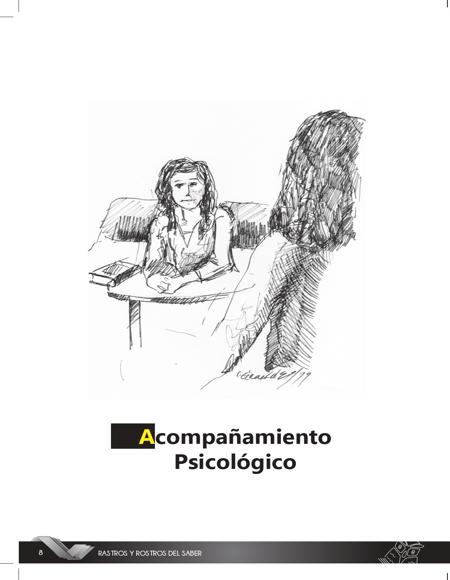Perspectivas de la educación ambiental instaladas en profesores: reflexión de las creencias y obstáculos

Abstract
Recently, the need to innovate has been reiterated and for this, several sectors of society are concerned about achieving a balance in the ecosystem, including the education area. This article presents a qualitative methodological approach in which a reflection of the literature is made, about the beliefs and perspectives that teachers have about environmental education and its teaching, as well as the main obstacles that interfere in the teaching of environmental education contents. When making a reflection of the literature, the article considers that teachers commonly identify environmental education with ecology, the environment or confuse it with PRAES; In addition, they do not apply the transversal structure to the curriculum, but they take it as a subject in the area of natural sciences. As a result, the need for teachers to reflect and, if possible, transform the conceptions and application of environmental education in the school is highlighted
Keywords
Environmental education, Perspectives, Teachers, Teaching, Beliefs
References
Aguerrondo, I. y Verzub, L. (2003). Los primeros años como maestro. Desarrollo profesional de los do- centes uruguayos. Programa de modernización y formación docente. Montevideo: ANEP-MEM- FOD.
Azcárate, P. (2004). Los procesos de formación: en busca de estrategias y recursos. Octavo Simposio de la Sociedad Española de Investigación en Educación Matemática. A Coruña, España.
Breiting, S. (2008). Mental Ownership and Participation for Innovation in Environmental Education and Education for Sustainable Development. En Participation and Learning: Perspectives on Edu- cation and the Environment, Health and Sustainability (eds. A. Reid, B.B. Jensen, J. Nikel, y V. Simovska), pp. 159-180. Netherlands: Springer.
Fullan, M. (2002). Políticas de formación docente en la mancomunidad del Caribe. En AAVV, Formación Docente: un aporte a la discusión, 15-34. Santiago de Chile: UNESCO-OREALC.
Goldsmith, E. y Hildyard, N. (1986). The social and environmental effects of large dams. Wadebridge Ecological Centre, Reino Unido, 404 pp.
Marcelo, C. y Vaillant, D. (2009). Desarrollo Profesional Docente. ¿Cómo se aprende a enseñar? España: Narcea, S.A. de Ediciones.
Montecinos, C. (2003). Desarrollo profesional docente y aprendizaje colectivo. Psicoperspectivas. Indi- viduo y Sociedad, 2 (1), 105-128.
Moreno, E. (2005). La formación inicial en Educación ambiental de los profesores de Secundaria. Uni- versidad de Valencia. Tesis Doctoral. pág.303
Naciones Unidas (1992). Sobre el medio ambiente y desarrollo. Rio de Janeiro.
Novo, M. (1996). La Educación Ambiental formal y no formal: dos sistemas complementarios. OEI. Revista Iberoamericana de Educación No. 11. 1996.
Pajares, M. (1992). Teachers´beliefs and educational research: cleaning up a messy construct. Review of Educational Research, 62, 307-332.
Pope, M. y Scott, M. (1983). Teachers’ Epistemology and Practice, en Halkes, R. y Olson, J.K. Teacher Thinking: a New Perspective on Persisting Problems in Education. Lisse: Swets y Zeitlinger. (Trad. cast. 1988, La epistemología y la práctica de los profesores, en Porlán, R., García, J. y Cañal, P. Constructivismo y enseñanza de las ciencias. Sevilla: Díada).
Pozo del, M. (1995). El conocimiento escolar y profesional sobre el cambio químico en el diseño curri- cular Investigando Nuestro Mundo. Investigación en la Escuela, 27, pp. 39-48.
Pozo del, M. (1998). “Conocimiento profesional y epistemología de los profesores, II: estudios empíri- cos y conclusiones” en: Revista Enseñanza de las Ciencias. Vol. 16. No. 2. Barcelona: Institut de Ciències de l’Educació de la Universitat Autònoma de Barcelona, p. 274.
Sauvé, L. (2004). Perspectivas curriculares para la formación de formadores en educación ambiental.
Carpeta informativa CENEAM, 162-160.
Tréllez, E. y Quiroz, C. (s.f.). La educación ambiental en la educación primaria, p.p 9.
UNESCO. (1977). La Educación ambiental. Las grandes orientaciones de la Conferencia de Tbilisis. París. UNESCO.
Vázquez, A. y Manassero, M. (2005). Actitudes de los jóvenes en relación con los desafíos medio-am- bientales. Infancia y Aprendizaje, 28(3), 309-327.
Verzub, L. (2011). La formación y el desarrollo profesional docente frente a los nuevos desafíos de la escolaridad.